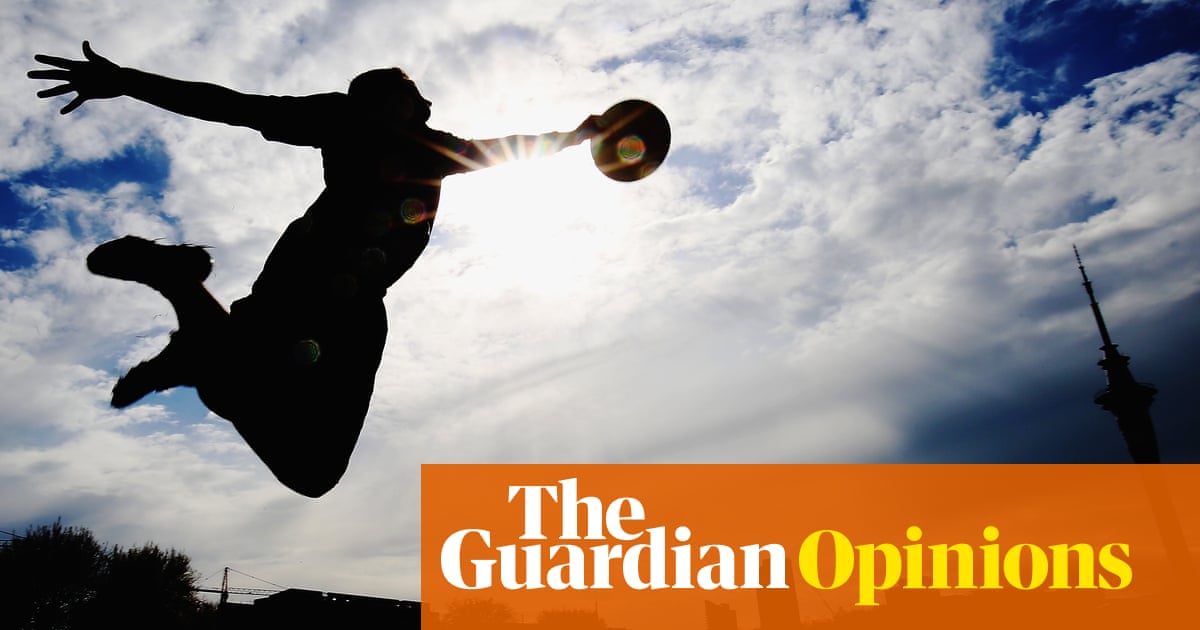It all begins with a flick of the wrist. I hold my breath as I watch a disc wobble through the air. When it starts going sideways, I grimace. In that moment, I bear a striking resemblance to a cartoon hen in Chicken Run, but instead of staring down the barrel of my pie-shaped destiny, I’m playing Ultimate Frisbee – and I’ve just executed a deeply suboptimal “pull”.
These are all words I learned mere months ago, and I’m likely using them incorrectly. Either way, they’re the language of a sport that has become my new favourite pastime – and the unexpected key to repairing my once-fractured relationship with exercise.
I’d never heard of Ultimate Frisbee until I was added to a ragtag WhatsApp group of 60-odd adults intent on playing the game a few months ago. Every Wednesday, anywhere from eight to 18 thirtysomethings pull up to the park at sunset with 30 drill cones, a 175g disc and most crucially, a desire to have pure, unfettered fun.
Put crudely, Ultimate Frisbee is a non-contact team sport that blends the passing rules of netball with the end zone chaos of American Football.
Points are scored by passing the disc to a teammate in the opposing end zone. Players must not take steps while holding the disc, and interceptions, incomplete passes and passes out of bounds are turnovers. Rain, wind or other adversities such as a loose labradoodle on the pitch make for fast-paced, nail-biting matches.
Perhaps the most interesting element of the competition is that Ultimate Frisbee is self-officiating. Even at the highest levels of competition, there is no referee. The sport relies on a principle called SOTG – “spirit of the game”. This spirit is taken seriously – the World Flying Disc Federation outlines that “highly competitive play is encouraged, but should never sacrifice the mutual respect between players, adherence to the agreed-upon rules of the game, or the basic joy of play”.
These principles are felt on the grass. We are amateurs in every way which adds to the chaos and thus, the spirit. We switch up teams each week, we bring a boom box and we let newbies take a few steps when they catch their first disc. We have conspiratorial team huddles, oranges at half-time and the occasional mid-air collision that sends someone headlong into the turf like a rag doll. The basic joy of play is magnetic. Rare, too.
I’m especially attracted to this sport because it’s the first I’ve ever found that feels completely devoid of effort. We run, duck and dive, full pelt, for 45 minutes per game. It feels like five. This is astonishing to me. From my late teens right through to my late 20s, I was addicted to exercise in all its most joyless, soulless forms. I didn’t feel as if I had “worked out” unless I was drenched in sweat and gasping for air. If I wasn’t in pain, I wasn’t doing it right.
For years, I thought that’s just how exercise was meant to feel. It was something to be tracked, to be completed, to be painful or else it was pointless. What kept me hooked was the sense of smug self-satisfaction I felt immediately after a challenging exercise class. When I walked out on to a busy street, I’d see people my age drinking beer with their friends. I pitied them their lack of discipline. I was doing the right thing, but I was missing the point.
While recovering from an eating disorder, I stopped “driven exercise” completely. It was a necessary circuit breaker. I needed to prove to myself that I could step away from exercise classes forever and live to tell the tale. Live a meaningful life, full of beer and friends, even. A wild concept.
It took years, but finally, the empty space was ready for a new tenant. Thankfully, it’s a flying object that’s a joy to identify.
Lucinda Price is a writer, presenter and comedian who goes by the name Froomes
